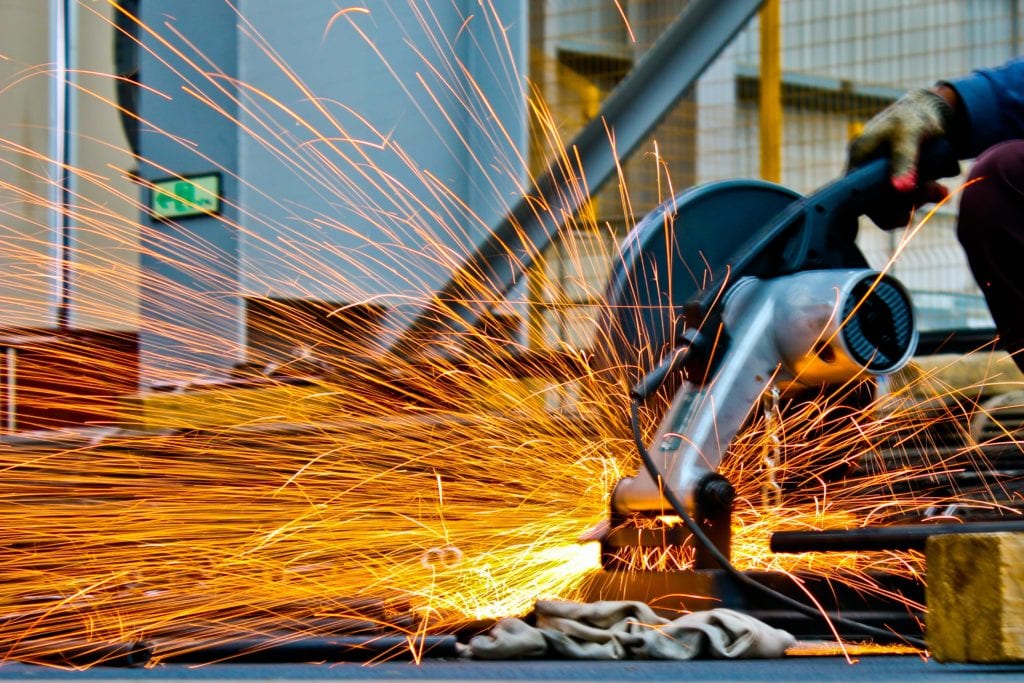An import-export business focused on machinery could be a lucrative project in Canada, where the machinery market is worth billions of dollars. But moving machinery across borders can come with taxes, duties, and other restrictions. Learn the basics of importing and exporting machinery in Canada to see if it’s the right business move for you.
The machinery market
“Machinery” is a very general term that can refer to a wide range of products. In terms of importing and exporting, machinery refers to the machine industry, or companies producing and maintaining machines of all kinds, for either consumers, other companies, or governments. If you’re considering starting a machinery import-export business in Canada, you should narrow down what field you’ll be working in:
- Commercial and household appliances: Ovens, refrigerators, air conditioners, and other large appliances
- Industrial machinery: Machinery used for heavy or light industry, ranging from packaging and labeling equipment to food processing and textile equipment
- Machine tools: Tools used to cut, bore, grind, or shear (usually to create other machines or manufactured products)
- Construction equipment: Machinery that moves earth, plumbing and heating equipment, or parts for mixing and paving
- Farm and garden machinery: Tractors, animal feeders, lawnmowers, etc.
- Electric motors and generators: Turbines powered by gas or steam, wind turbines, or sets that generate electricity
Another type of “machinery” that you may choose to import or export is electric or electronic equipment (EEE). You will likely incur taxes or duties on importing EEE or exporting it to another country. And if you’re trying to import or export used machinery or EEE, you’ll run into many more obstacles.
Bans and restrictions on importing used machinery or EEE
Several countries have implemented restrictions or outright bans on importing used machinery or used EEE. For those countries that do allow imports of used machinery and EEE, you may have to meet certain requirements or pay extra duties. Countries that restrict or ban used EEE include:
- India
- Vietnam
- Bangladesh
- Egypt
- China
- Ghana
- Nigeria
- Pakistan
- The Philippines
- Singapore
- South Africa
- Uganda
- Indonesia
- Hong Kong
If you want to export certain types of farming or agriculture machinery, you should also be aware that several countries restrict imports of this kind of machinery to protect local manufacturing sectors or to prevent the spread of disease.
When considering the kind of machinery you want to import or export, you should always look at the rules of the country you’d like to export to. With so many bans on various types of machinery, EEE, or equipment across the world — which are often temporary — it’s best to scope out the situation before you start your machinery import-export business.
Canadian businesses that want to import and export machinery should work with a customs broker to ensure they follow all the proper regulations.
Importing and exporting machinery in Canada
If you want to import machinery into Canada, or export machinery from Canada, you’ll have several considerations to take into account.
Energy efficiency reporting
Businesses that want to import machinery or EEE into Canada must undergo energy efficiency reporting. If you import a product that uses energy, you must file an energy efficiency report with Natural Resources Canada (NRCan). Energy-using products may include household appliances such as dishwashers and air conditioners, lighting such as fluorescent lamps, dry-type transformers, polyphase induction electric motors, some electronics, and more.
Non-regulated vehicles
The machinery you import may also be considered a vehicle, such as a farm tractor. Canada has several import regulations for vehicles, including planes, boats, and cars, under the Motor Vehicle Safety Regulations. But some vehicles are non-regulated, so you don’t need to meet the same stringent import requirements on them. Some examples of non-regulated vehicle types include:
- Lawn tractor
- Golf cart (to be used expressly as a golf cart)
- Segway
- Electric wheelchair or similar personal mobility aid
- Farm tractor
- Agricultural columbine
- Forklift
- Backhoe
- Skid steer front-end loader
- Crawler mounted excavator
While these vehicles do not have to comply with the Motor Vehicle Safety Act, they still must pass the Canada Border Services Agency (CBSA) entry requirements. CBSA will have to confirm the vehicle’s status as non-regulated, inspect it for soil contaminants, examine ownership documents, and collect applicable taxes or duties. If the vehicle or equipment you’re importing is used, you will have to undergo further inspection.
Documents for importing machinery
If you’re importing heavy equipment into Canada, you may need the following documents:
- Commercial invoice or Canada Customs Invoice (from U.S. exporters)
- Manifest or Cargo Control Document
- Bill of Lading
- Shipper’s Export Declaration
You should also reference Canada’s Import Control List to see if the machinery or heavy equipment you’re importing requires a special permit. An experienced customs broker can usually help you with the permit process.
Export Control List
In addition to controlling machinery imports, Canada also controls some machinery exports. The machinery you’re exporting that would be subject to control include military goods or equipment, or technology and computer equipment.
When it comes to machinery, there isn’t a blanket ban or rule on importing and exporting because machinery is such a wide category. There isn’t a “machinery” section on the Import or Export Control Lists in Canada. You’ll have to determine which rules apply to the machinery or electronic equipment you want to import and export. To save you the hassle, Border Buddy can handle the import and export of your machinery and electronic equipment into and out of Canada. As an experienced customs broker, we can ensure you meet the right requirements moving your machinery across borders. Give us a call today to learn more.
